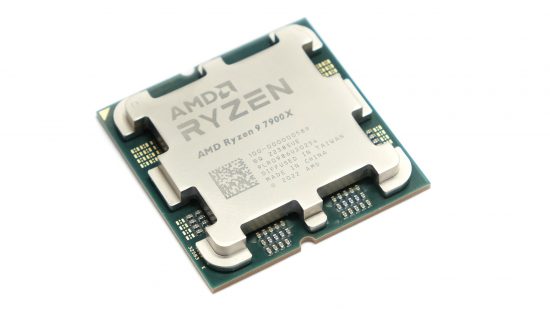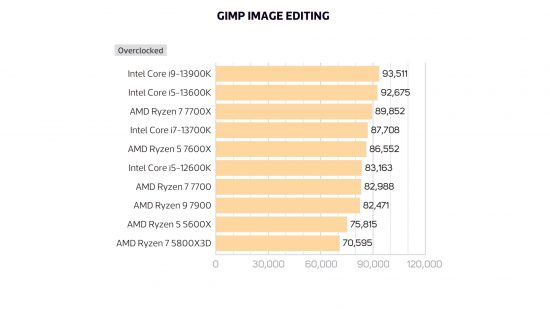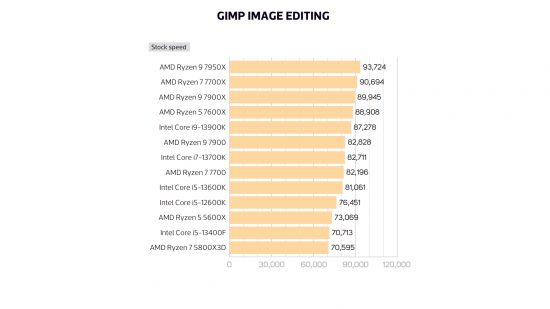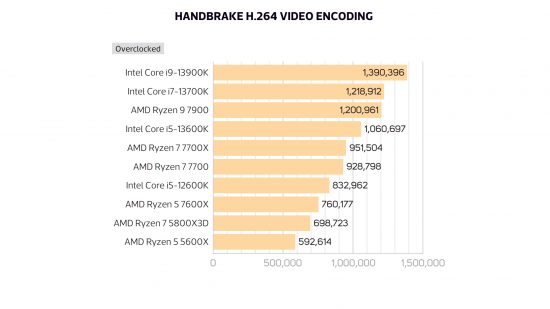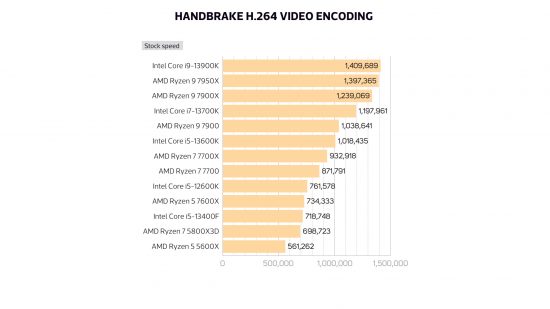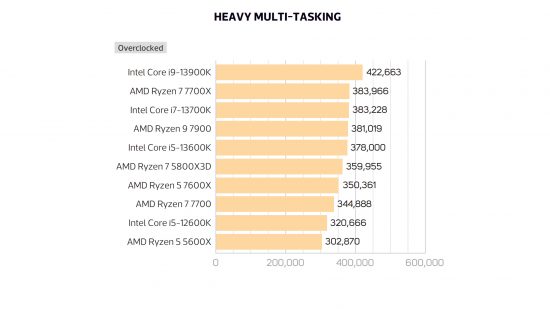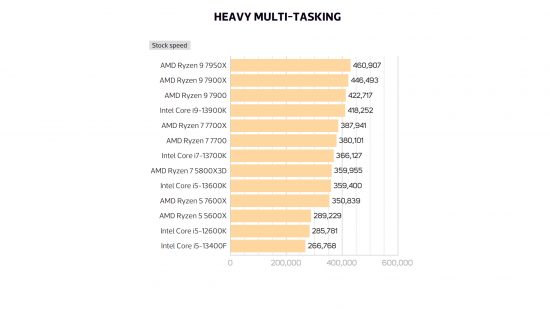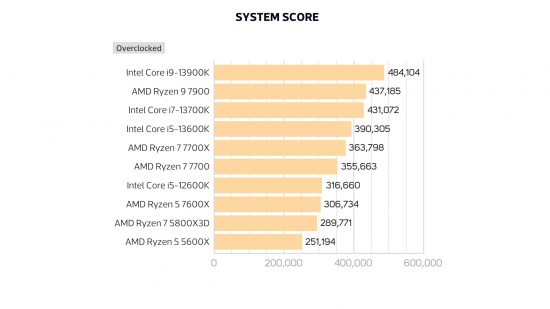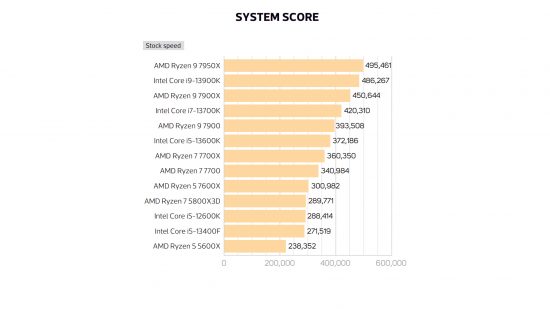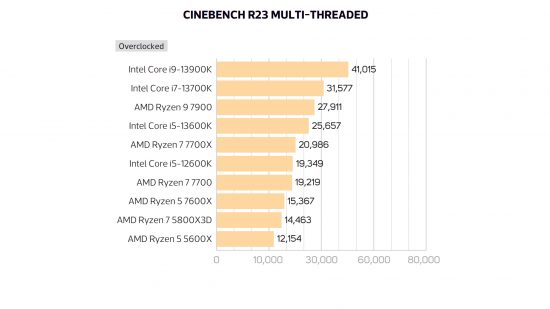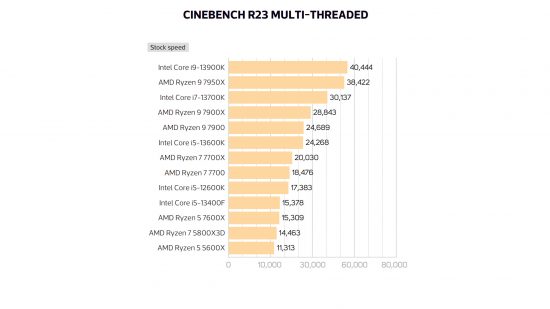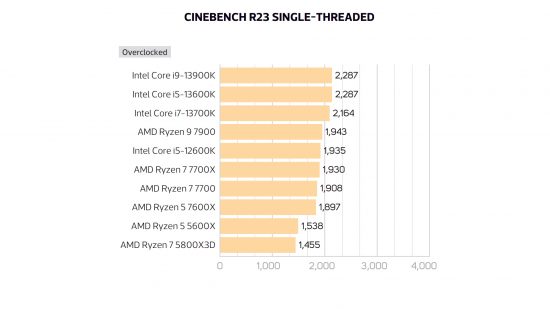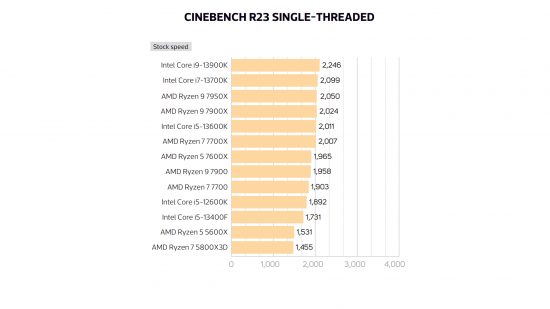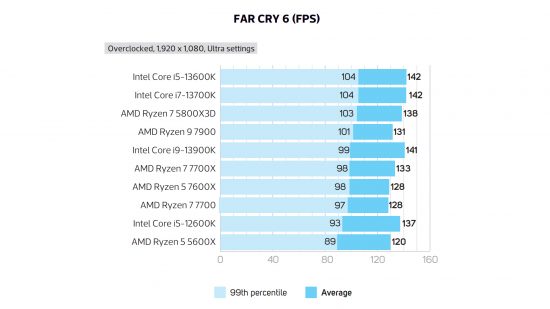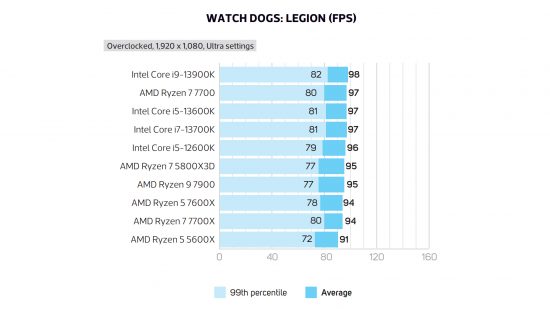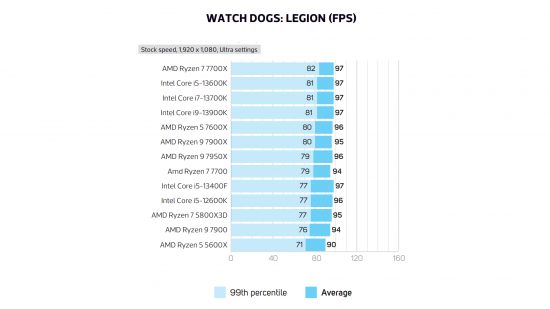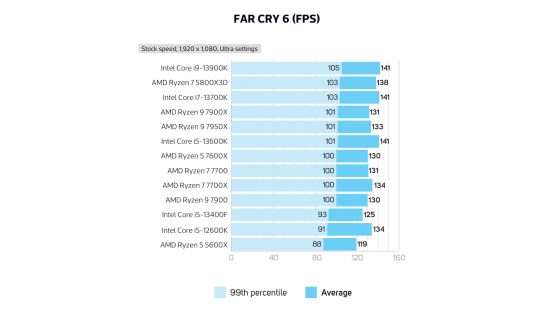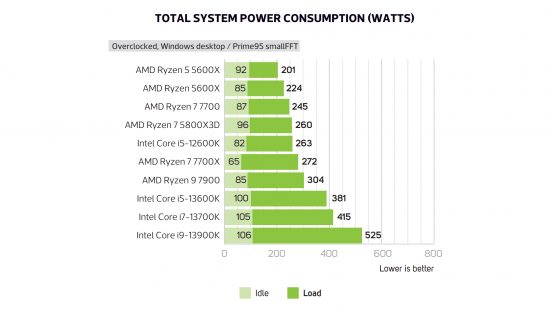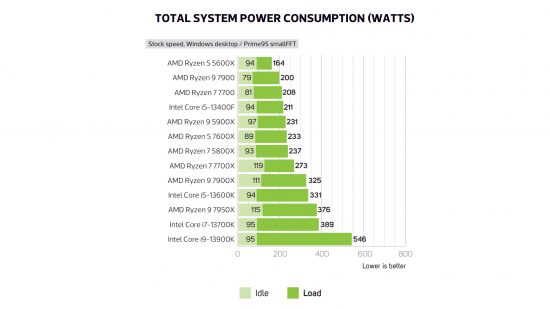Our Verdict
79%A good all-rounder but it’s no faster than cheaper CPUs in games.
The Ryzen 9 7900X has had a drastic cut in its price over recent months, with $100 slashed from its tag, meaning it now sits level with the Intel Core i7-13700K, which is arguably where it should have been priced at the start. We’ve never seen such significant price drops so early after a CPU’s product launch, so it’s going to be interesting to see where it now sits against the competition.
At Custom PC, we’ve been reviewing the latest CPUs since 2003, and we’ve tested and overclocked hundreds of CPUs, going right back to the Pentium 4 and Athlon XP era. We’ve developed an expert testing methodology that covers all the key areas of performance, including single-threaded and multi-threaded performance, as well as gaming.
Our benchmarks include our very own RealBench suite, which had a GIMP image editing test that stresses single-threaded performance, and a Handbrake H.264 video encoding test to gauge multi-threaded performance, as well as multi-tasking tests.
We also use the single and multi-threaded tests in Cinebench, Far Cry 6 and Watch Dogs: Legion. For our game tests, we record the 99th percentile and average frame rates, and finally, we also measure the idle and load total system power consumption at the wall, while running Prime95’s smallest FFT test with AVX disabled.
As with most Ryzen 7000-series CPUs, the Ryzen 9 7900X has massive clock speed boosts over its predecessor, offering an 800MHz higher peak boost frequency at 5.6GHz and an all-core boost clock that’s a huge 1.2GHz, which is incredible.
On the other hand, this is also partly enabled by a much higher TDP, which now stands at 170W, and it runs significantly hotter, usually quickly topping 90°C in multi-threaded tests.
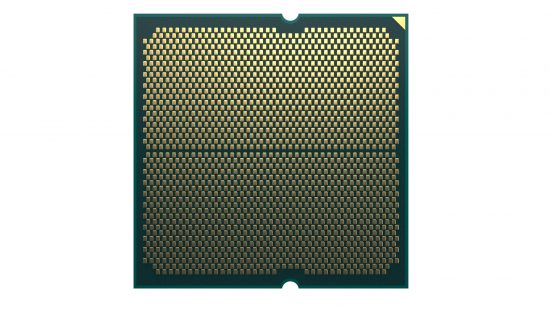
It also takes advantage of AMD’s latest Zen 4 architecture and 5nm manufacturing process, as well as having double the L2 cache of its predecessor at 12MB. Otherwise, the basic spec hasn’t changed – the two CPUs still have 12 cores and 24 threads, while the Core i7-13700K received both a core count and clock speed increase over its predecessor.
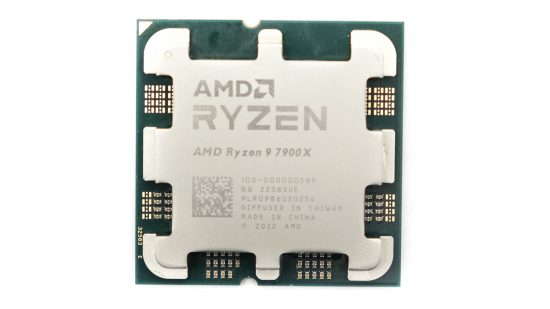
Ryzen 9 7900X application performance
The Ryzen 9 7900X certainly had the advantage over the Core i7-13700K in our RealBench test suite, offering higher scores in every test and outpacing even the Core i9-13900K in the image editing and multi-tasking tests. However, the Core i7-13700K overhauled it in Cinebench by nearly 1,400 points.
Ryzen 9 7900X gaming performance
The Ryzen 9 7900X isn’t a bad gaming CPU, but the frame rate of Core i7-13700K was faster in both Far Cry 6 and Watch Dogs: Legion. When it comes to gaming performance, the Ryzen 9 7900X struggles to justify its price against cheaper Zen 4 CPUs as well – the Ryzen 5 7600X is nearly as fast and significantly cheaper.
Ryzen 9 7900X power draw
The Ryzen 9 7900X power draw isn’t exactly frugal, with the total system power consumption sitting at 325W. The Intel Core i7-13700K is even more power-hungry, though with our system drawing 389W from the wall.
Ryzen 9 7900X overclocking
Given its high stock speed temperatures, we didn’t attempt a manual overclock on the Ryzen 9 7900X. The only way forwards if you wanted to do some tweaking is to use AMD’s curve optimizer. This can be complicated, time-consuming, and very specific to your CPU and cooling system, though.
The Intel Core i7-13700K was happier to receive a manual overclock, but this still wasn’t enough to beat the Ryzen 9 7900X in the RealBench system score at stock speed. It did, however, extend the Intel chip’s lead in Cinebench and the game tests, albeit with our test system now drawing over 400W from the wall.
Ryzen 9 7900X pros and cons
Pros
- Excellent multi-threaded performance
- Superb image editing performance
- Power frugal compared to the competition
Cons
- No faster in games than cheaper models
- High cost of Socket AM5 platform
- Gets hot at full load
Ryzen 9 7900X specs
The AMD Ryzen 9 7900X specs list is:
| Base frequency: | 4.7 GHz |
| Max boost frequency: | 5.6 GHz |
| Core: | Zen 4 |
| Manufacturing process: | 5 nm |
| Number of cores: | 12 |
| Number of threads: | 24 |
| IGP: | AMD Radeon Graphics |
| L3 cache: | 64 MB |
| L2 cache: | 12 MB |
| Memory controller: | Dual-channel DDR5, up to 5200MHz |
| Packaging: | AMD Socket AM5 |
| Thermal design power (TDP): | 170 W |
| Simultaneous Multithreading (SMT): | Yes |
| Features: | Precision Boost 2, Precision Boost Overdrive 2, FMA3, F16C, SHA, BMI / BMI1 + BMI2, AVX-512, AVX2, AVX, AES, SSE4a, SSE4, SSSE3, SSE3, SSE2, SSE |
Ryzen 9 7900X price
The Ryzen 9 7900X is now much more competitive thanks to a price cut, but you’ll need to pay for a new motherboard and memory if you want to upgrade from an older system.
Price: Expect to pay $450 (£450)
Ryzen 9 7900X review verdict
The Ryzen 9 7900X is extremely powerful out of the box and certainly has an edge over the Core i7-13700K in most content creation tests, although the Intel CPU claimed a big scalp in Cinebench. The Intel chip was also slightly quicker in our game tests and the AMD CPU was also no quicker than the cheaper Zen 4 options here.
Additional competition comes from the Ryzen 9 7900, which wasn’t far behind in most tests, but draws a huge amount less power and even includes a cooler for less money.
Cheaper Socket AM5 motherboards may be around the corner, reducing the argument that Intel’s platform is cheaper overall, but we’d still opt for the Core i7-13700K or Ryzen 9 7900 over this chip. Check out our guide to the best gaming CPU for a range of CPUs to suit different needs and budgets.
